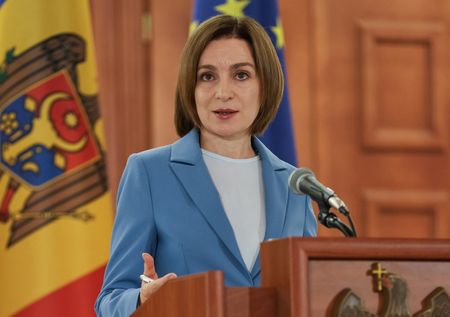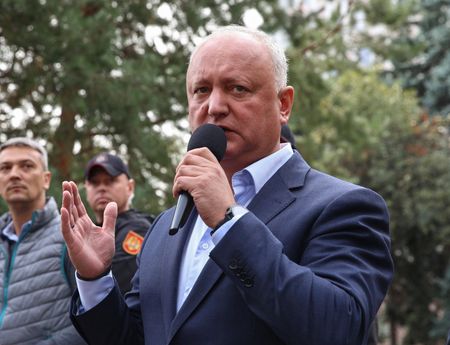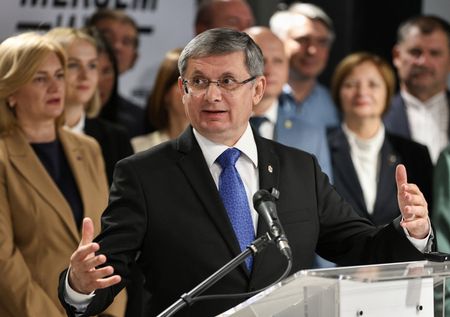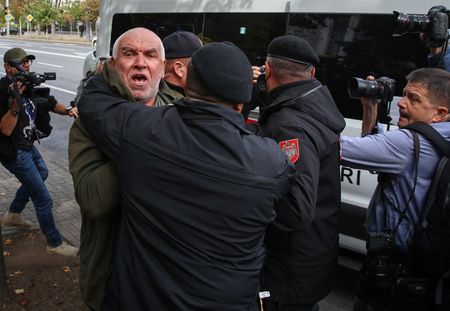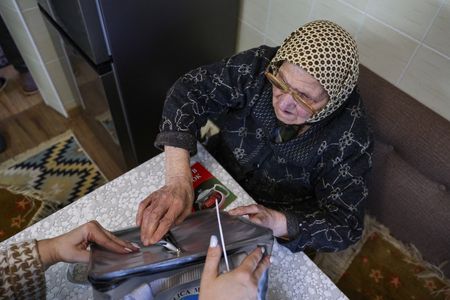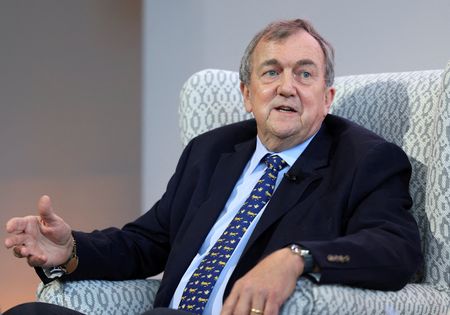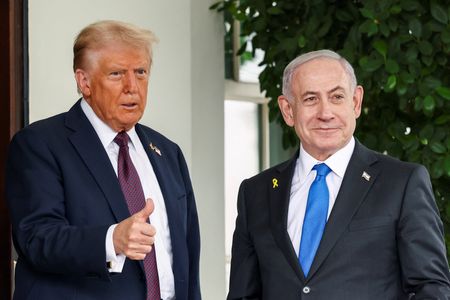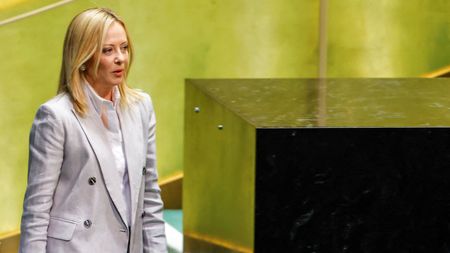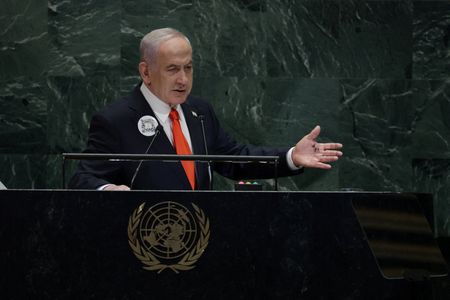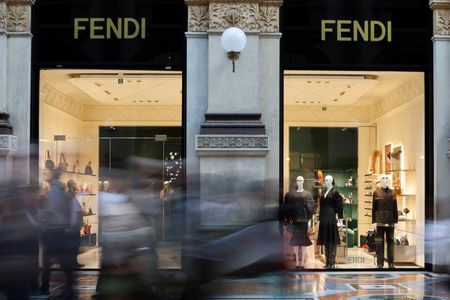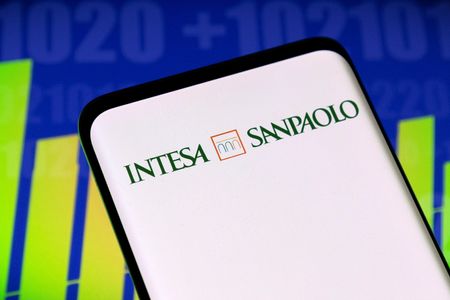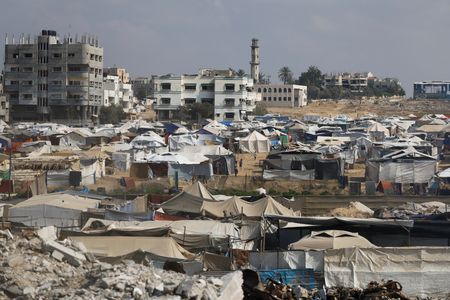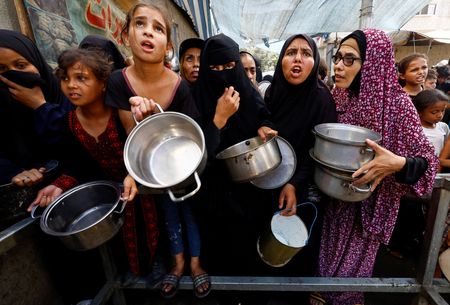By Dan Peleschuk
CHISINAU, September 29 (Reuters) -Moldova’s pro-European ruling party won a resounding victory over its Russian-leaning rival in a key parliamentary election, results on Monday showed, in a major boost for the country’s bid to join the European Union and break away from Moscow’s orbit.
The surprisingly strong performance on Sunday by President Maia Sandu’s Party of Action and Solidarity (PAS) against the Patriotic Bloc was a relief for the government and its EU partners, who accused Moscow of seeking to influence the vote.
“This is not just a party’s victory — it is Moldova’s victory. The European path is our way forward,” Sandu said on X.
With all votes counted, PAS won 50.2% versus 24.2% for the Patriotic Bloc, which had sought to steer Moldova – a small former Soviet republic that lies between Ukraine and EU member Romania – closer to Russia.
STRONG SUPPORT FOR EU MEMBERSHIP
“The people of Moldova… chose democracy, reform, and a European future, in the face of pressure and interference from Russia,” Antonio Costa, president of the European Council which represents the EU’s 27 member states, said on X.
The leaders of France, Germany and Poland, in a joint statement, congratulated Moldova for “the peaceful conduct of the election, despite unprecedented interference by Russia, including with vote-buying schemes and disinformation”.
Ukrainian President Volodymyr Zelenskiy said the election result showed that Moscow had failed to “destabilise” Moldova.
However, Moscow – which denies the accusations of meddling – accused Moldovan authorities of preventing hundreds of thousands of its citizens who live in Russia from voting by providing only two polling stations for the large diaspora.
In Moldova, first-time voter Ana-Maria Orsu, 18, said she had noticed that many young people like her had turned out to cast their ballot.
“I think we have a bright future ahead of us,” she said in the capital Chisinau on Monday.
PAS leaders had called Sunday’s election the most consequential since Moldova’s independence from the Soviet Union in 1991.
Sandu’s government said Russia had attempted to sway the vote through widespread disinformation and vote-buying.
Authorities launched hundreds of raids in recent weeks targeting illicit party funding and alleged Russian-backed networks they said had sought to stir unrest over the vote.
OPPOSITION ALLEGES VOTING VIOLATIONS
Patriotic Bloc co-leader Igor Dodon, a former Moldovan president, said his party had filed documents to the Central Electoral Commission that proved voting violations.
“PAS is clinging to power through the diaspora votes,” Dodon said, referring to the large number of Moldovans who live and work in Europe, as around 100 opposition supporters protested outside parliament.
Dodon also said, without providing evidence, that more than 200,000 people living in Transdniestria, a pro-Russian separatist region, had been denied the chance to vote.
Sandu rejected that criticism, saying Moldova could not influence what happened in a region that did not recognise Moldovan government control.
“We have done our best to provide the conditions for the people from the Transdniestrian region who have been genuinely participating in the elections process … to come and vote and they have been able to do that,” she said.
OBSERVERS CITE FLAWS IN ELECTION PROCESS
The Organization for Security and Cooperation in Europe, which sent an observer mission to Moldova, said the election had been competitive despite flaws.
The election demonstrated a “high level of commitment to democracy amid unprecedented hybrid threats (coming) from Russia,” said Paula Cardoso, co-coordinator of the OSCE mission.
However, Cardoso said the decision by authorities to exclude two parties from the ballot just days before it happened “limited their right to seek effective remedy”. The parties were barred amid allegations of illegal financing.
Moldova – with a population of 2.4 million people that has been buffeted by the war in Ukraine, alleged Russian meddling and energy shortages – has long vacillated between Russia and Europe.
The Patriotic Bloc and other opposition groups had sought to tap into voter anger over economic pain and the slow pace of reforms. Inflation remains stubbornly high at around 7%, while Moldovans also shoulder higher costs for imported energy.
Anastasia Pociumban of the German Council on Foreign Relations said PAS now faced a huge challenge in “bridging the divides” in the country and better communicating the benefits of EU accession to more sceptical Moldovans.
(Reporting by Dan Peleschuk; Additional reporting by Philip Blenkinsop in Brussels, Charlotte Van Campenhout in Amsterdam, Felix Light in Tbilisi and Yuliia Dysa and Olena Harmash in Kyiv; writing by Mike Collett-White, editing by Gareth Jones)

